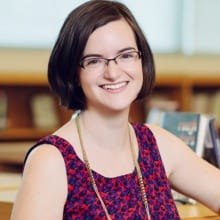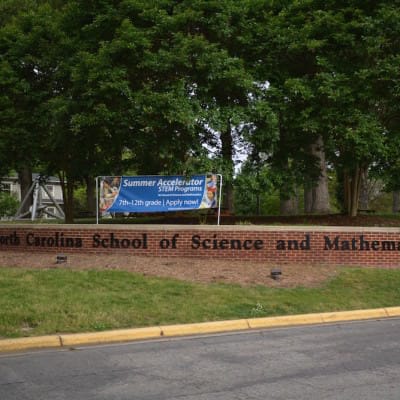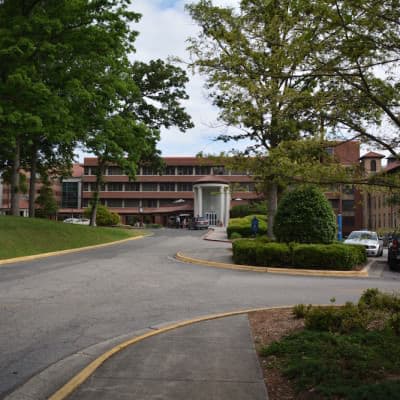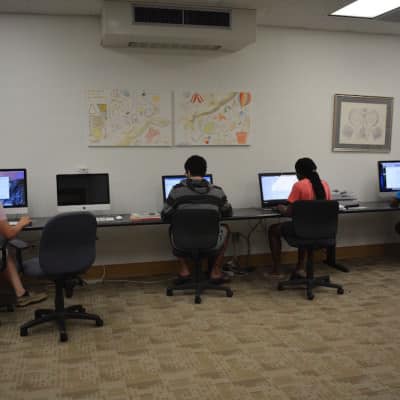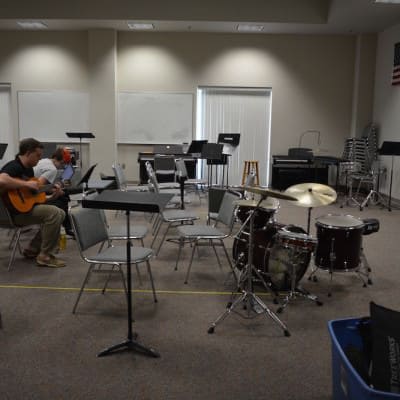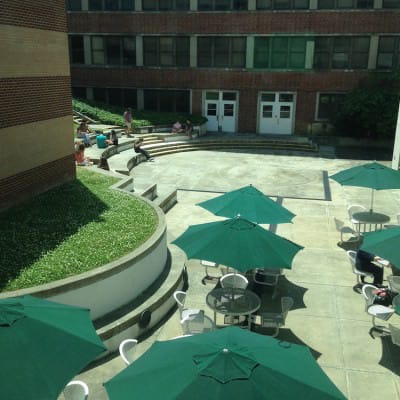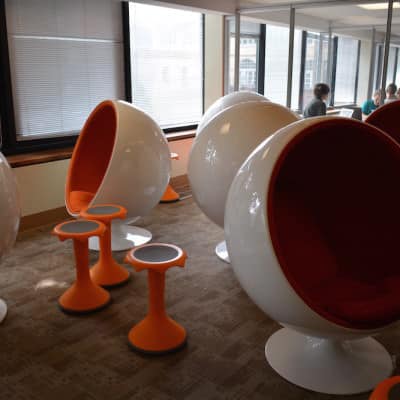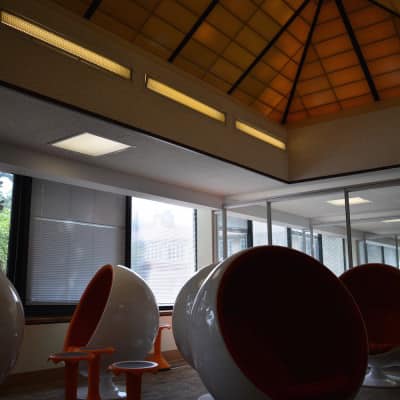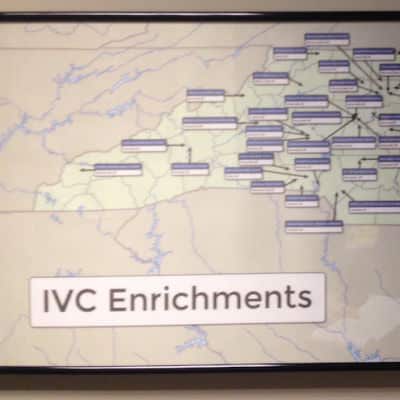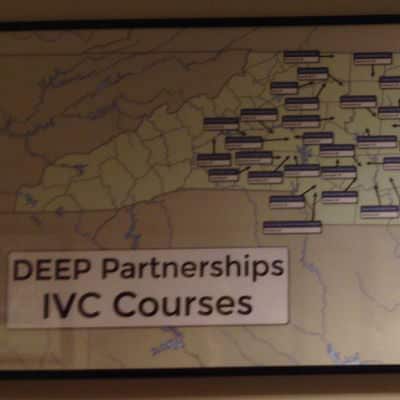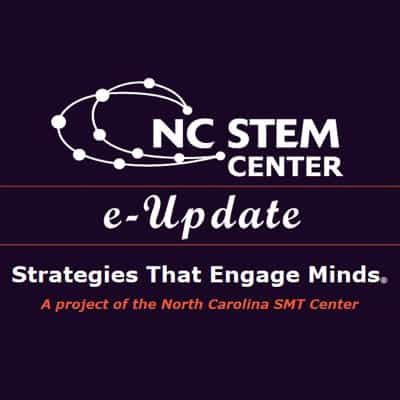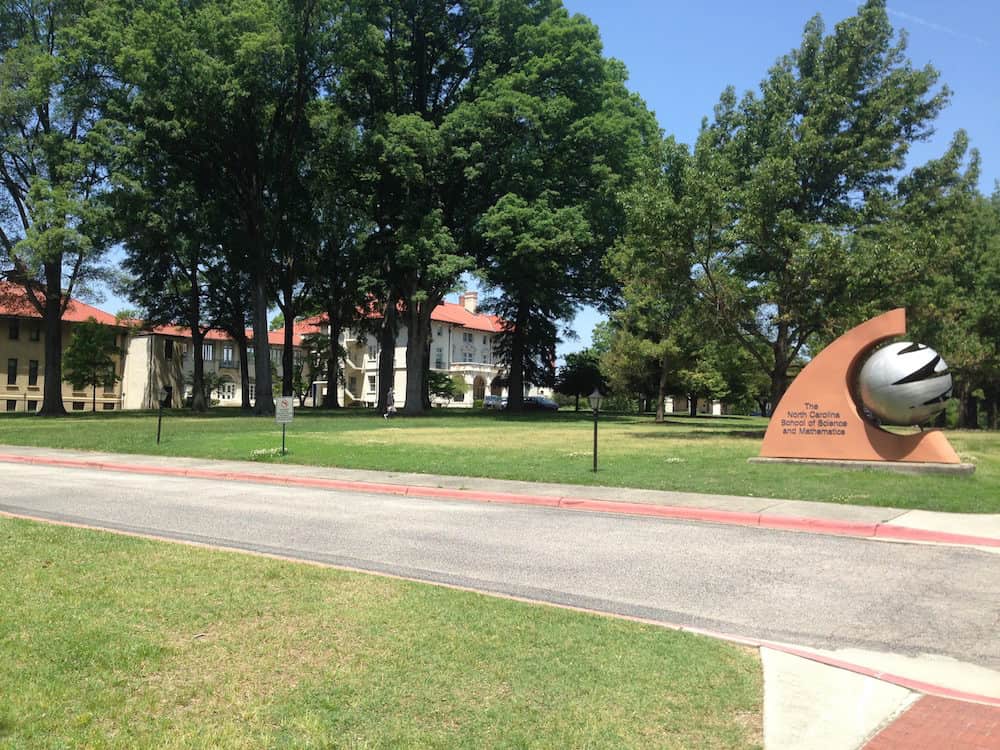

The North Carolina School of Science and Mathematics (NCSSM) is a public, free, residential high school serving juniors and seniors from all across North Carolina who excel in science and mathematics. The school offers a full curriculum — including arts and humanities — and has a special emphasis on science, technology, engineering, and math.
The first school of its kind in the nation, NCSSM was founded in 1980 by former Governor James B. Hunt Jr.; former governor, senator, and Duke University president Terry Sanford; and author John Ehle to give outstanding students in North Carolina the opportunity to become leaders in science and math industries in the state. This year, the school celebrated their 35th year.
In 1988, NCSSM worked together with a handful of other schools across the country to found the National Consortium of Specialized Secondary Schools of Math, Science and Technology, which is now the National Consortium of Secondary STEM Schools.
As pioneers in STEM education before there was even an acronym for STEM, NCSSM has become a model for 18 similar specialized schools around the world.
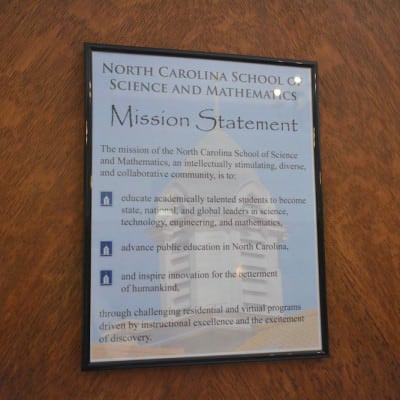

The mission of the North Carolina School of Science and Mathematics, an intellectually stimulating, diverse, and collaborative community, is to:
• educate academically talented students to become state, national, and global leaders in science, technology, engineering, and mathematics,
• advance public education in North Carolina,
• and inspire innovation for the betterment of humankind,
through challenging residential and virtual programs driven by instructional excellence and the excitement of discovery.
Of the over 8,200 alumni, 55 percent have degrees in STEM fields and more than 50 percent live and work in North Carolina, creating $500 million in annual economic impact for the state.1
There were about 1,400 applicants to the residential program this year and with just 340 spots for each entering junior class, they have a 24 percent acceptance rate. In addition to the competitive academic criteria, the school selects students based on congressional district and gender. Students are selected roughly equally from all 13 congressional districts and — because of residence hall capacity — the student body is 50 percent male and 50 percent female. All 100 counties in North Carolina are represented by students and alumni of the school. In the 2014-15 school year, 90 counties were represented.
NCSSM is located in the former Watts Hospital in Durham, NC. The campus is beautiful, surrounded by giant oak trees. The Mission Revival architecture is unique in the area and creates a pretty serene feel.
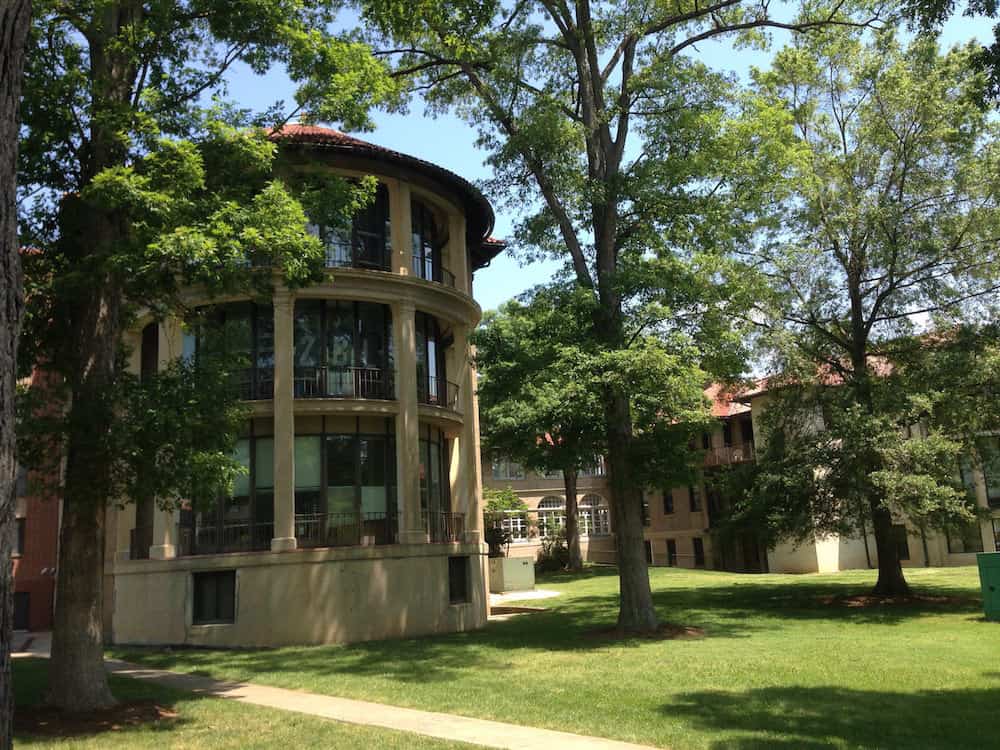



Student life
Since the residential students live on campus, the school is really their home. These high school juniors and seniors learn quite a bit about self-sufficiency and self-accountability before many people their age. They are responsible for getting themselves up in the mornings and going to class on time, washing their own clothes, keeping their rooms clean, and participating in work service across campus — for example, work in the cafeteria, on the grounds, or in the science labs.
Class times are from 8 a.m. to around 4 p.m. in a block schedule. The students take approximately four or five classes per day and have some free time throughout the day to study, work on assignments, practice instruments, or socialize.
The library is one of the students’ favorite places to go during their free time. These pod chairs shut out almost all noise and allow for a peaceful studying atmosphere.
Students are not allowed to leave campus without express permission and must be back by sunset. They must be in their residence halls by 10 p.m., but otherwise, the facilities are open to students to use whenever they need. There are more than 70 clubs for students to join — academic, physical, social, and service related. There are also 21 varsity sports and many more intramural sports. Over 85 percent of students participate in intramural activities.
Statewide impact through interactive video conference classes
With the incredible success of the residential program, NCSSM was soon looking for ways to serve even more students across the state. In 1994, the school started offering their first distance education classes, using public television channels to broadcast the classes. This type of course offering has changed over the years and is now the Interactive Video Conference (IVC) program. In the 2013-14 school year, IVC was in 25 school districts across North Carolina.
The IVC program is offered tuition free to North Carolina public schools. This is an invaluable service for resource-constrained districts that are unable to provide teachers for a small handful of students interested in taking advanced STEM courses. Some of the courses NCSSM offers through the IVC program are Honors Genetics & Biotechnology, Honors Forensic Science, Honors Physics, AP Calculus AB, Honors Aerospace Engineering, and AP Environmental Science. IVC provides an opportunity for students in schools across North Carolina to participate in a virtual, interactive classroom setting for no cost.
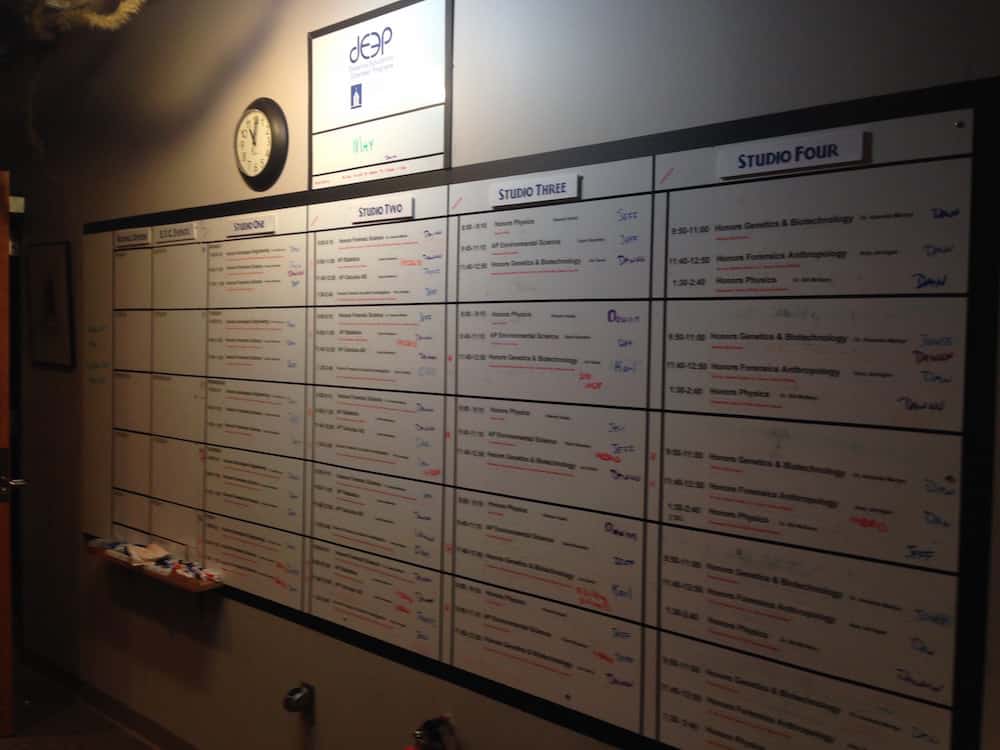

The teachers use group activities, videos, and whiteboards during a class session and students collaborate with their classmates taking the same course at other schools across the state.
When I visited, math teacher Linda Henderson was teaching AP Calculus AB. She sits at this desk in a video studio and presents class materials on the touchscreen monitor in front of her.
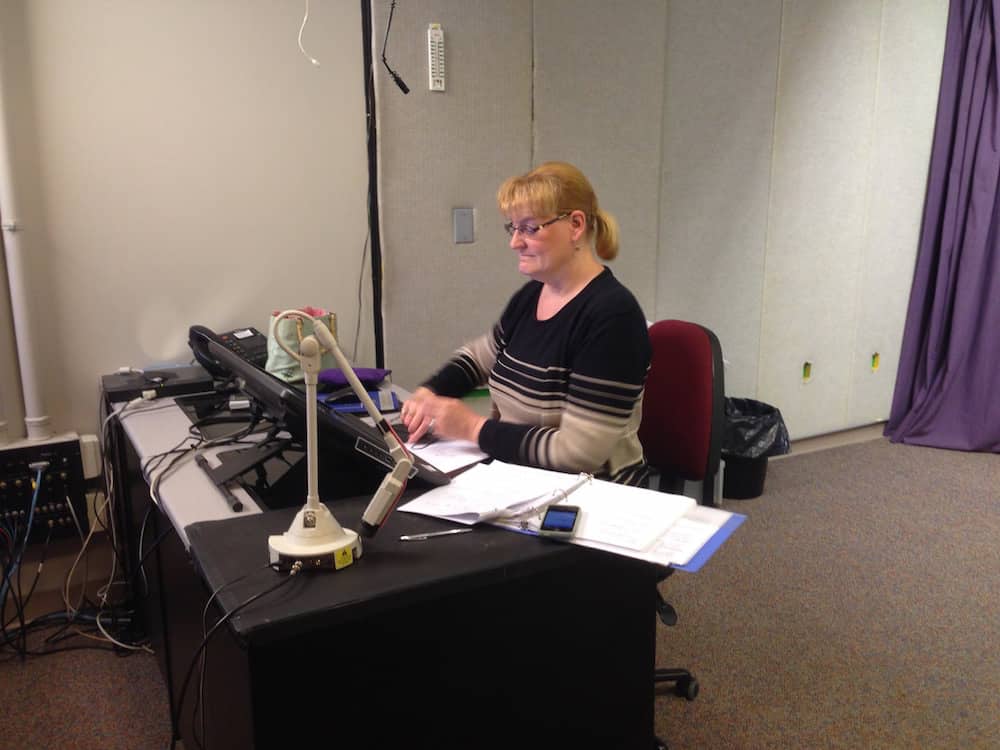

In front of her sits these monitors, displaying each of the classrooms of students participating in the class, along with a screen showing her what the students are seeing.
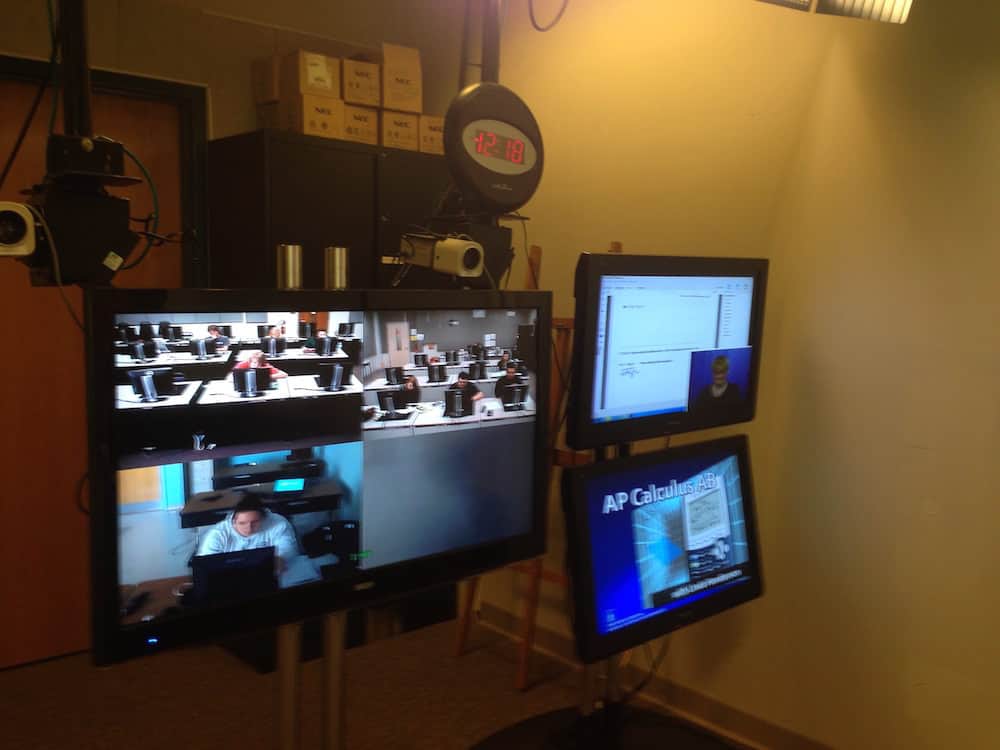

A technician sits in a control room and takes care of all of the technical aspects of the video conference, allowing the teacher to not have to worry about anything but teaching.
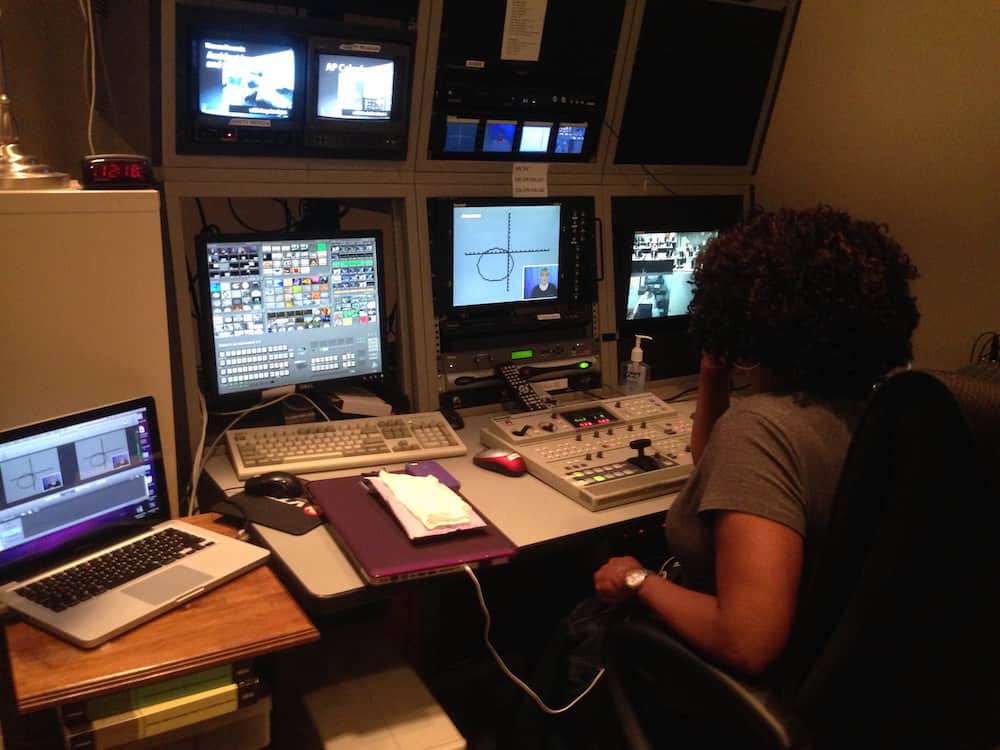

Providing enrichment through NCSSM Online
In 2008, NCSSM Online was created, providing supplemental NCSSM courses to accomplished students while still enrolled at their local school. Students are selected to participate in this rigorous program through a competitive application process similar to the residential program. For the 2014-15 class year, there were 418 applicants, of which 156 were selected.
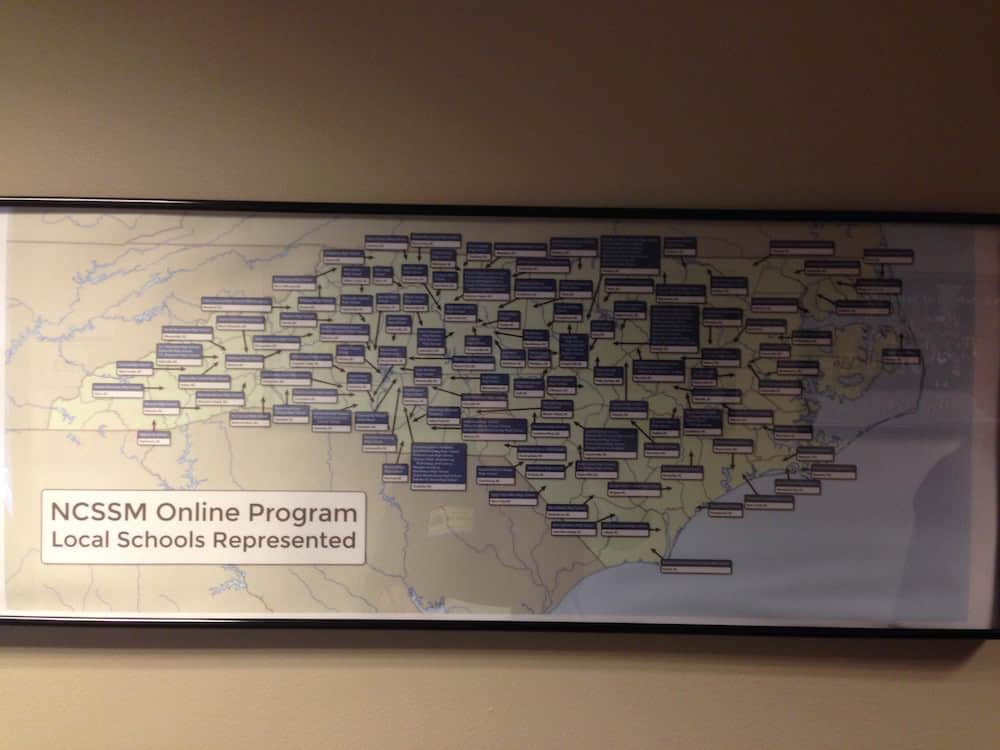

NCSSM Online is a two year sequenced online program that provides advanced, high-caliber STEM courses to students while they are still attending their local high school. Students may take two to four courses per year through the online program. Sometimes these classes are taken in addition to a full load at their local high school.
The students who attend NCSSM Online have the opportunity to participate in school activities like clubs, student government, community, and summer programs. They are also invited to attend the school’s prom. When they graduate, the students receive a diploma from their local high school and a transcript from NCSSM along with a certificate of completion.
This photo of the graduates of the NCSSM Online class of 2014 shows everybody in their local high school regalia.
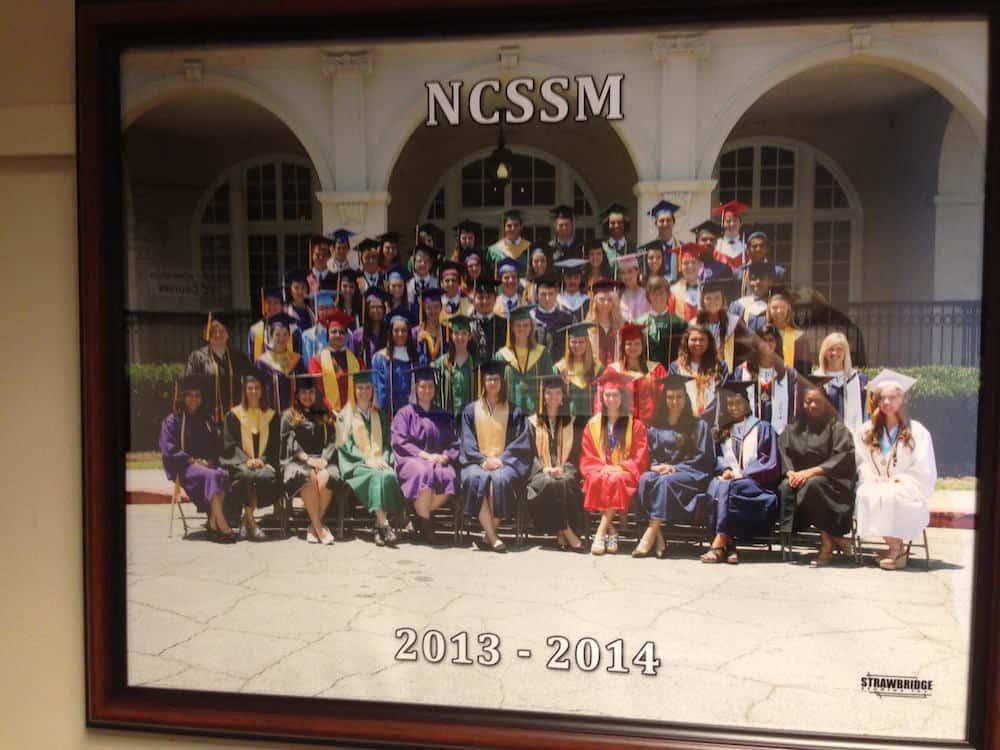

NCSSM’s mission includes “advance public education in North Carolina.” With the limited capacity of the residential program, the distance education programs are growing to account for the increased need of high-caliber STEM education in the state, especially in rural areas that may be resource-limited. In fact, there are more students served by NCSSM’s distance education programs each year than by the residential program. How fortunate North Carolina’s schools are to have resources like NCSSM to provide supplementary enrichment for free to any students who need it.
Here are some free resources from NCSSM:
Professional development opportunities for teachers
